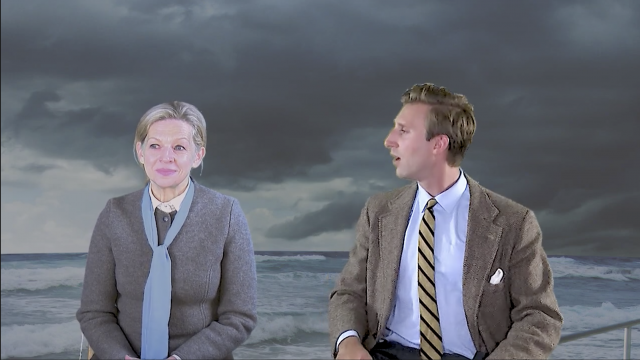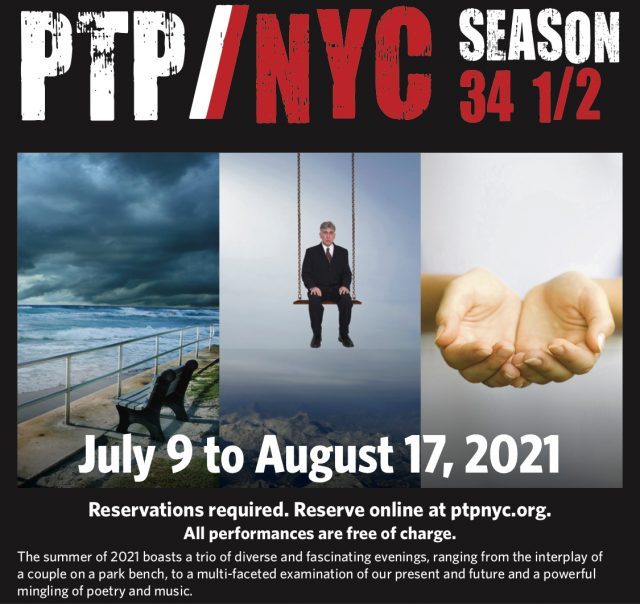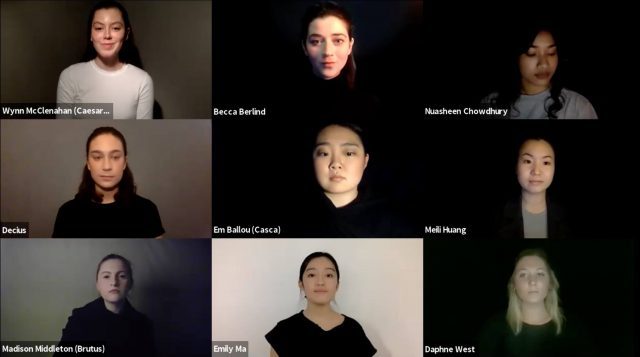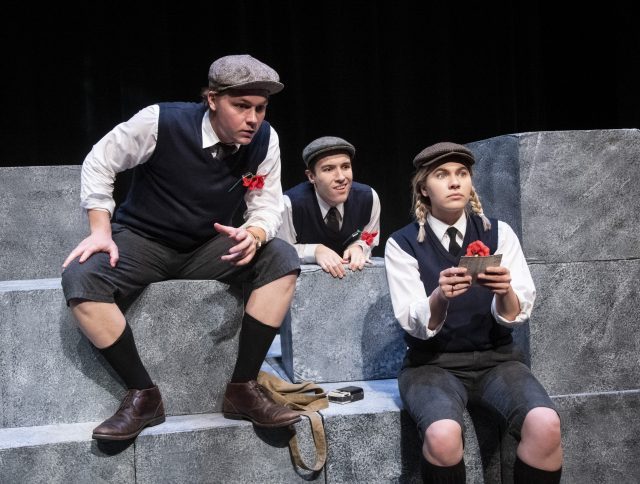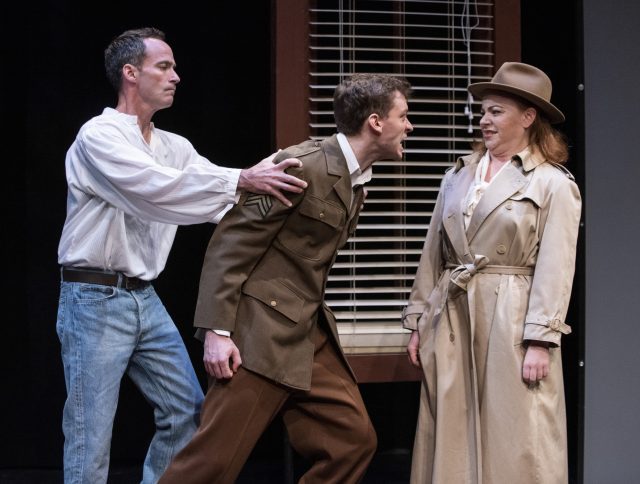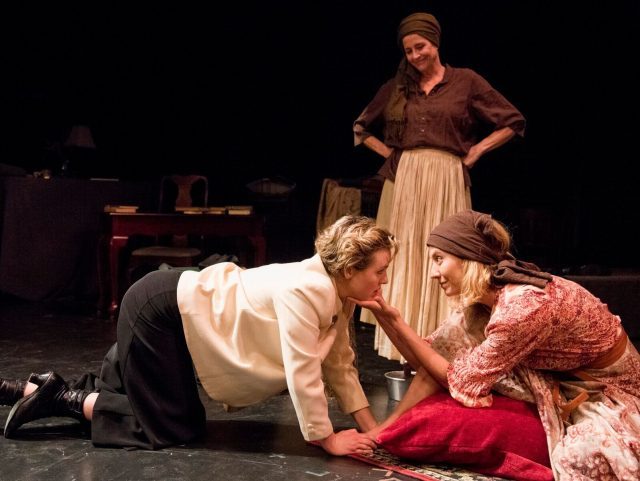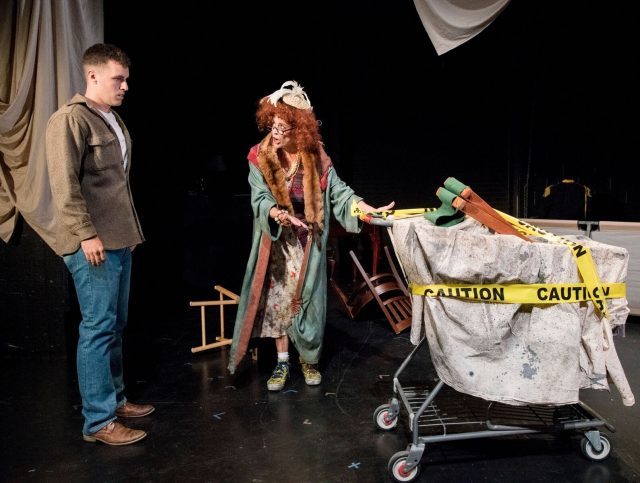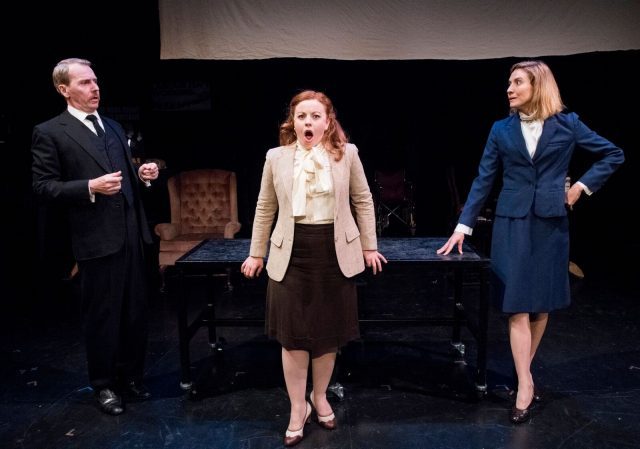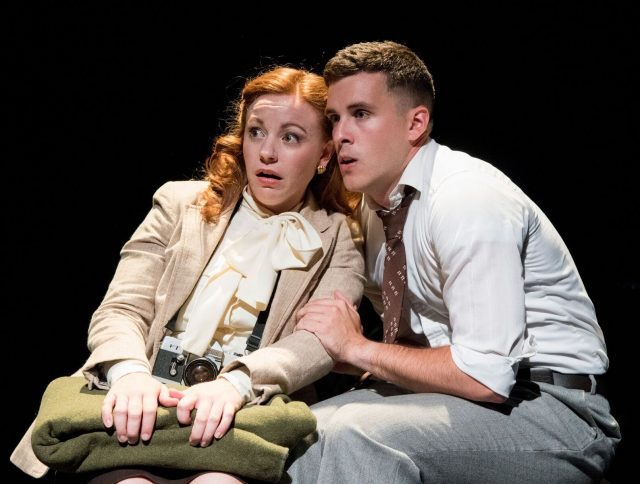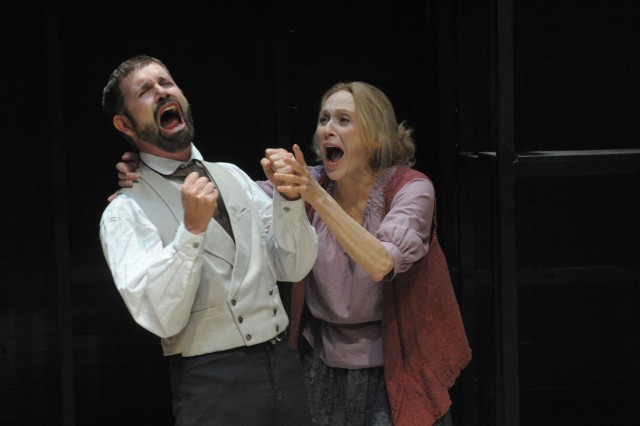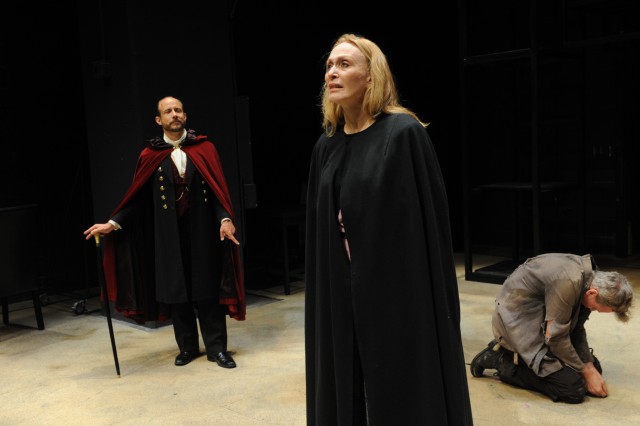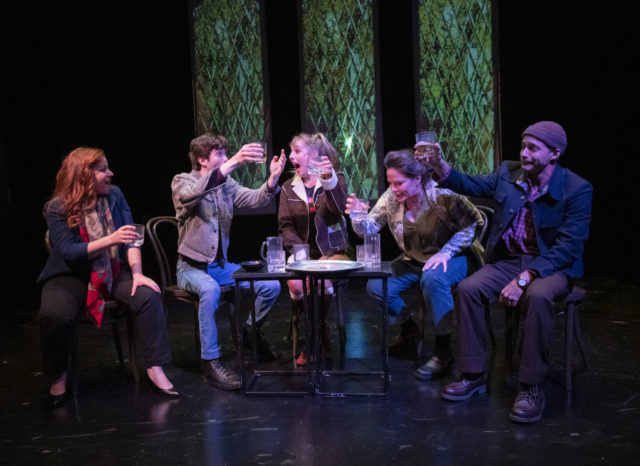
A group of grifters plans a heist in Caryl Churchill’s Hot Fudge
SEX, GRIFT, AND DEATH
PTP/NYC: Potomac Theatre Project
Atlantic Stage 2
330 West Sixteenth St. between Eighth & Ninth Aves.
Tuesday – Sunday through July 31, $21.50-$31.50
ptpnyc.org
The Potomac Theatre Project (PTP/NYC) is celebrating its thirty-fifth anniversary with two programs running in repertory at Atlantic Stage 2 through the end of July. I saw “Sex, Grift, and Death,” which begins with the New York premiere of Steven Berkoff’s 1983 Lunch and continues with two short works by Caryl Churchill, 1989’s Hot Fudge and the New York premiere of 2015’s Here We Go. The other program, “Reverse Transcription,” consists of Robert Chesley’s 1989 Dog Plays and the world premiere of Jim Petosa and Jonathan Adler’s A Variant Strain, one-act plays that thematically link the AIDS crisis and the Covid-19 pandemic.
PTP/NYC presented a prerecorded virtual production of Lunch last summer, starring Bill Army as Tom and Jackie Sanders as Mary, two strangers who meet at the beach. They engage in absurdist conversation and share their thoughts directly with the audience as they explore their loneliness and contemplate hooking up. He is a salesman who sells “space, acres of nothing”; she is a married woman who can’t decide whether she minds being bothered by him. Oddly, the forty-minute play, directed by PTP/NYC cofounder Richard Romagnoli with the same cast, lacks the dramatic impact it had online. Mark Evancho’s set features a bench, a garbage can, and a lamppost in front of a screen on which video of a calm shore repeats; the projection, by Courtney Smith, is accompanied by the soft, soothing hums of the sea, courtesy sound designer Sean Doyle.
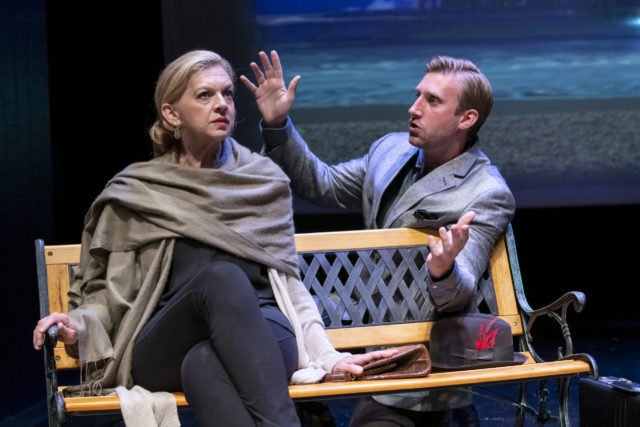
Jackie Sanders and Bill Army star as two strangers meeting at the beach in Steven Berkoff’s Lunch
“What do you want?” Tom asks. “Nothing,” Mary replies. A moment later he asks, “What were you waiting for?” She answers, “No one — I just like sitting here — alone.” Not giving up, he says, “Don’t you ever want something else?” She insists, “You’re not looking for me — you’re looking for it! Any it.” During the pandemic, we were all waiting, not necessarily sure what we wanted. One thing we did ache for was live, in-person theater; however, this live, in-person Lunch feels strained; it never quite hits its stride, lacking the passion and humor of the virtual edition.
However, things get much better after intermission with a compelling pair of Churchill works, beginning with Hot Fudge. The four-part play follows Ruby (Tara Giordano) as she gathers with friends and lovers (and others) during one long, wild night. First she joins Matt (Gibson Grimm), Sonia (Molly Dorion), Charlie (Chris Marshall), and June (Danielle Skraastad) at 7:00 at a pub, where they are planning a unique series of robberies. “You have to be quite brave to lie so much,” Ruby says at one point, a line that is central to the narrative.
Two hours later Ruby is at a winebar with her stylish new boyfriend, Colin (David Barlow), who appears to be some kind of international businessman, while Ruby has untruthfully told him that she owns a travel agency. Ruby and Colin continue the partying at a club at 11:00 with Hugh (Marshall), Grace (Wynn McClenahan), and Jerry (Teddy Best), where they discuss connections, global industry, ecology, and tennis. The play concludes at 1:00 at Colin’s place, where an unexpected visitor (Skraastad) interrupts the festivities and threatens to uncover some harsh realities they’ve been dancing around all evening.
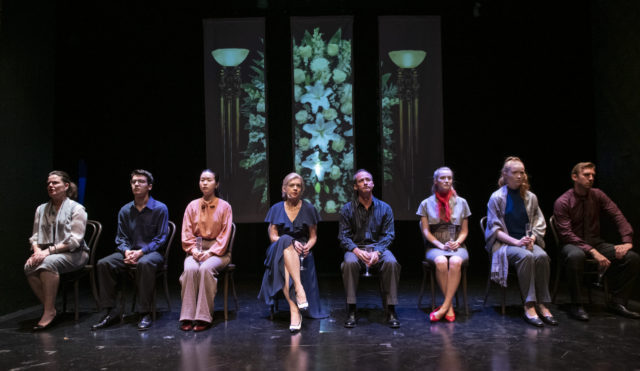
Caryl Churchill’s Here We Go is a three-part meditation on death
Hot Fudge was originally paired with Churchill’s Ice Cream, but PTP/NYC extremely successfully replaces that with Here We Go, a three-part meditation on death. In the first section, eight characters (Marshall, Skraastad, Army, Sanders, Maggie Connolly, Meili Huang, Annabelle Iredale, Charlie Porto) are at a funeral, talking about the deceased while, one at a time, they take center stage and share how they will depart from this mortal coil. After that, a man (Barlow) delivers a complex monologue, trying to figure out his place in the universe as he realizes, “I’m on my own.” Hot Fudge ends with an ailing man (Barlow) being attended to by a caregiver (Keith) in a harrowing, silent finale that is nearly overwhelmed by an all-pervasive sense of loneliness that questions whether any of us, or all of us, can really exist on our own.
Directed by Cheryl Faraone, who is married to Romagnoli and cofounded PTP with him and playwright-director Jim Petosa in 1987, Hot Fudge and Here We Go flow seamlessly into each other, as if they were meant to be together. They feel tailor made for this precise moment in time, as America is clouded by ever-increasing dishonesty, led by the Big Lie, and the citizenry emerges from two years of a pandemic, reevaluating their lives and careers while dealing with so much death, including more than one million Covid-19 victims in this country alone.
Evancho’s set design consists primarily of a variety of chairs that are moved on- and offstage by the cast after each scene under a shadowy darkness. There’s a lot of sitting and standing, culminating in the poignant finale that puts it all into illuminating, and frightening, perspective.
PTP/NYC has been presenting works by Churchill for nearly thirty years, beginning with The After-Dinner Joke in 1993 (and again in 2002 and 2018) and continuing with Mad Forest in 1998, Serious Money in 2012-13, Vinegar Tom in 2015, and a virtual Far Away in 2020, all directed by Faraone, who knows just what to do with Churchill’s complex dialogue and story lines. The eighty-three-year-old British writer has penned more than fifty plays and radio dramas, so I can’t wait to see what PTP/NYC has in store for us in the future, particularly since the company is reconfiguring its annual format going forward.
